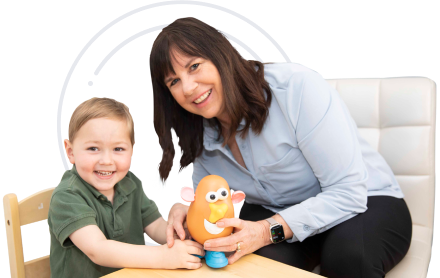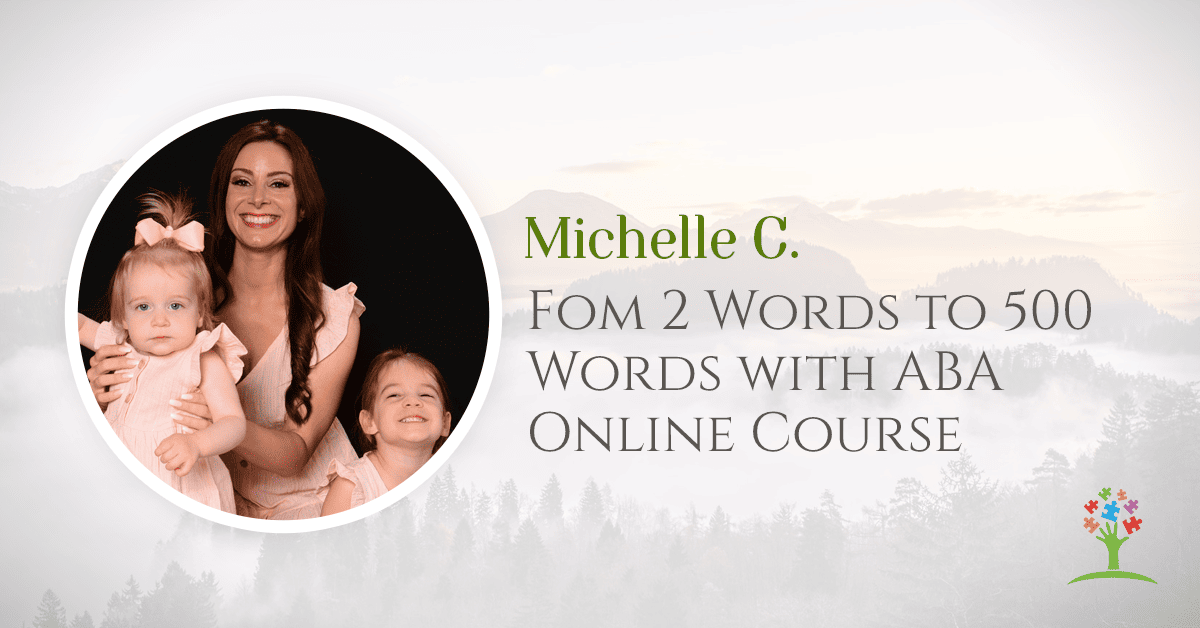Autism Case Study with Michelle C : From 2 Words to 500 Words with ABA Online Course
Want to Learn how to Increase Talking & Decrease Tantrums in Children with Autism or Toddlers Showing Signs?
Want to start making a difference for your child or clients?

I love getting updates on children who have gone through my course. Michelle C. has joined me on the podcast before when her daughter Elena was first diagnosed with autism two years ago. I talk a lot about Elena’s case and she’s been featured in several chapters of my book, Turn Autism Around. This episode is airing on Elena’s 4th birthday as we discuss her truly amazing progress.
Early Diagnosis of Autism Spectrum Disorder
Benefits of ABA Therapy
With a new diagnosis, Michelle knew ABA therapy was important for Elena’s development. With therapy facilities being shut down left and right due to COVID, the internet led her to my Toddler and Preschooler Course. This course provides parents and professionals with the opportunity to learn and teach their child using proven ABA strategies. Michelle got right to work, finding that the table time aspect of the course provided her with a valuable connection to her daughter. Michelle finished the course in less than 60 days and saw language improvement of 2 words to 500, used consistently with function. This changed both Elena and Michelle’s lives in a big way!
Michelle is a wonderful example of the power of captaining your own ship. The progress she has seen with Elena has made a big impact on her and she now is able to effectively advocate for both of her daughters. Michelle is a valued adviser on our on team, reading and responding to comments across our platforms to help parents. I am so thankful for her willingness to share her and Elena’s story!

Michelle C. on Turn Around Autism
You’ll Learn
- Can autism improve over time?
- Can an autism diagnosis be removed?
- Can children’s language skills improve with ABA?
- How can online courses improve autism symptoms?
- Transitioning from ABA therapy to typical school.
- Can you receive special education services when autism symptoms have been reduced or resolved?
- Why is an early diagnosis of autism important?
Resources
- Sign-up For Mary Barbera’s Workshop
- New Case Study
- Autism Success Story with Michelle C.
- Dr. Rick Kubina: Fluency and Precision Teaching
- Why Teaching Carrier Phrases is a Bad Idea
- Why Teaching Kids Manners Like “Please” and “Thank You” Should Be Avoided Early On
- Mistakes to Avoid when Increasing Language Skills in Children with Autism
- Lessons about Turning Autism Around: An Interview with a Mom of 2 Young Boys with Autism
Want to Learn how to Increase Talking & Decrease Tantrums in Children with Autism or Toddlers Showing Signs?
Want to start making a difference for your child or clients?
